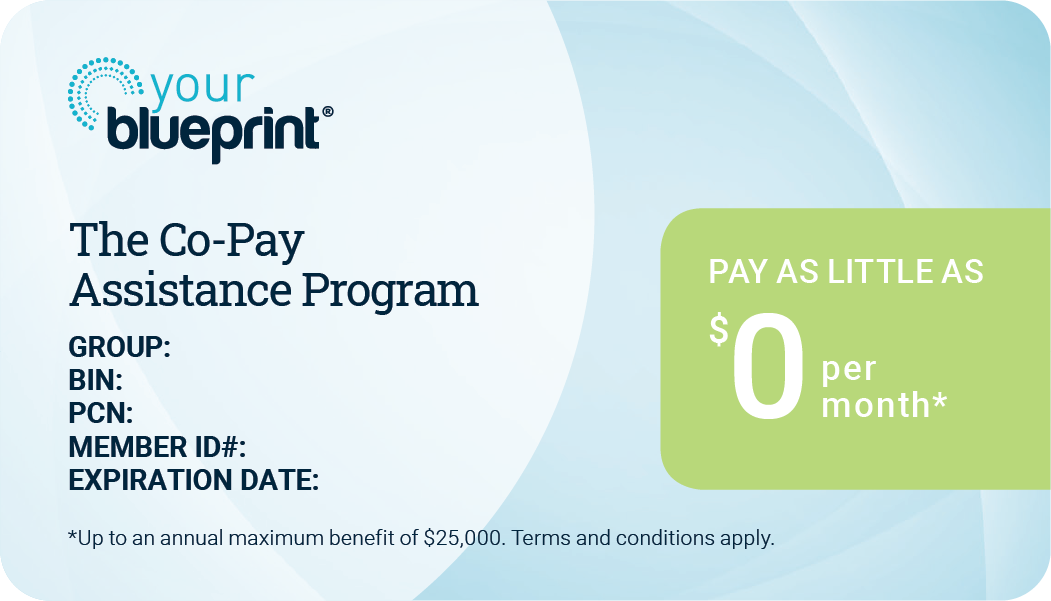Financial Assistance
YourBlueprint® is Here to Support Your Patients
Together, we can help patients understand their insurance benefits and connect eligible patients with one of our financial assistance programs.

Co-Pay Assistance Program
Commercially insured patients who qualify for this program can reduce their out-of-pocket costs (co-pay, co-insurance or deductible) to as little as $0 per month.†
- Patients must have commercial insurance with coverage for their prescription
- Not for cash-paying or uninsured patients
- Electronic enrollment required
Click the button to enroll your patients. Please note, dispensing pharmacies will need to contract with the program processor to maintain eligibility to redeem the card on behalf of their patient. Click here to learn more. Read the terms and conditions, or call us at 1-888-BLUPRNT (1-888-258-7768) to learn more.
†Up to an annual maximum benefit of $25,000. Terms and conditions apply.

Patient Assistance Program
The Patient Assistance Program offers medication at no cost to those who are eligible.
If your patient is uninsured or has limited coverage, they may be able to receive their medication at no cost. To qualify, patients must meet certain eligibility requirements including:
Have a valid prescription for a Blueprint Medicines therapy
Reside in the U.S. or a U.S. territory
Meet financial eligibility criteria. Please call YourBlueprint at 1-888-BLUPRNT (1-888-258-7768) to learn more about the financial eligibility criteria.

Independent charitable foundations
Your patient’s Case Manager can help you contact foundations that might be able to assist your patient. These foundations are not associated with Blueprint Medicines and establish their own eligibility and application processes. Blueprint Medicines does not endorse any foundation. Speak to your patient’s Case Manager to learn more.